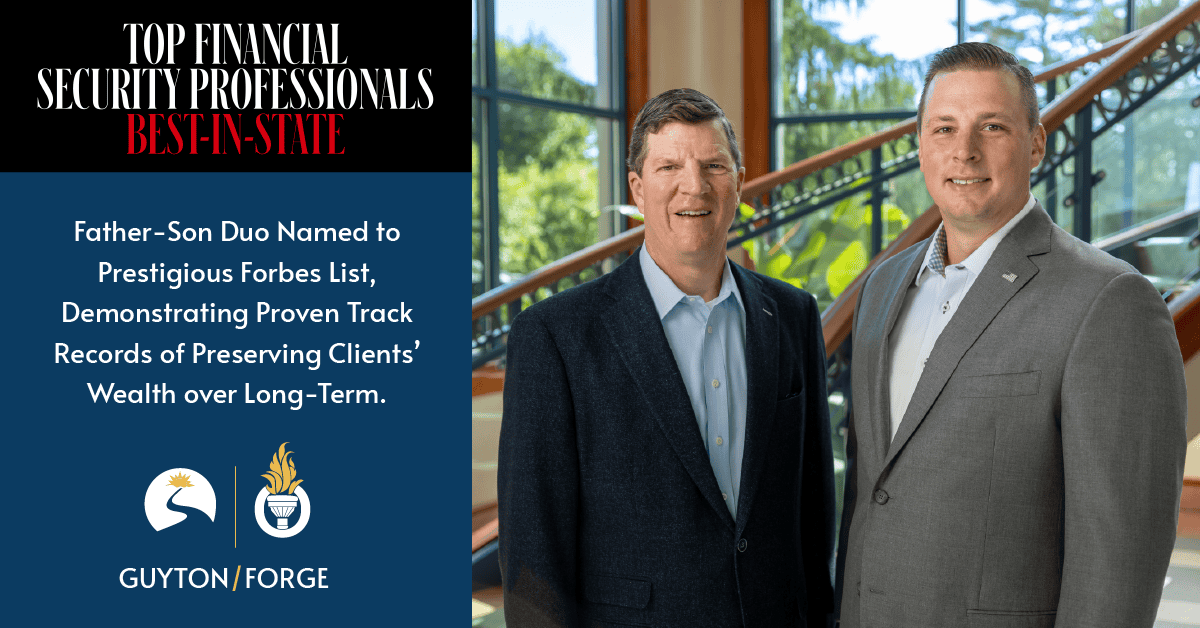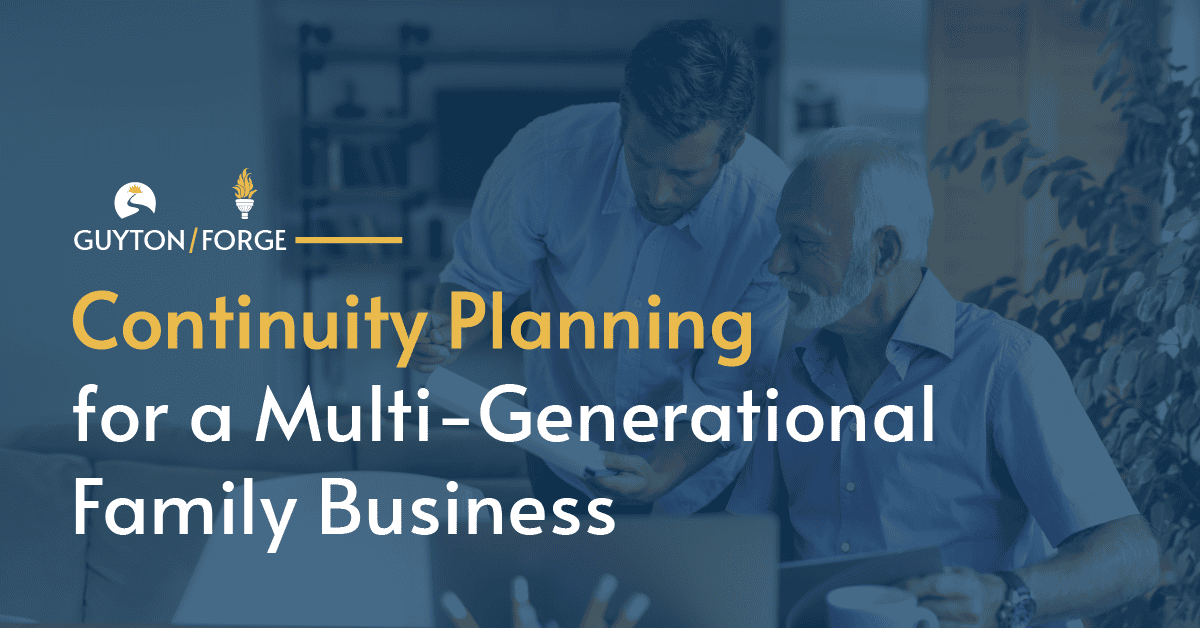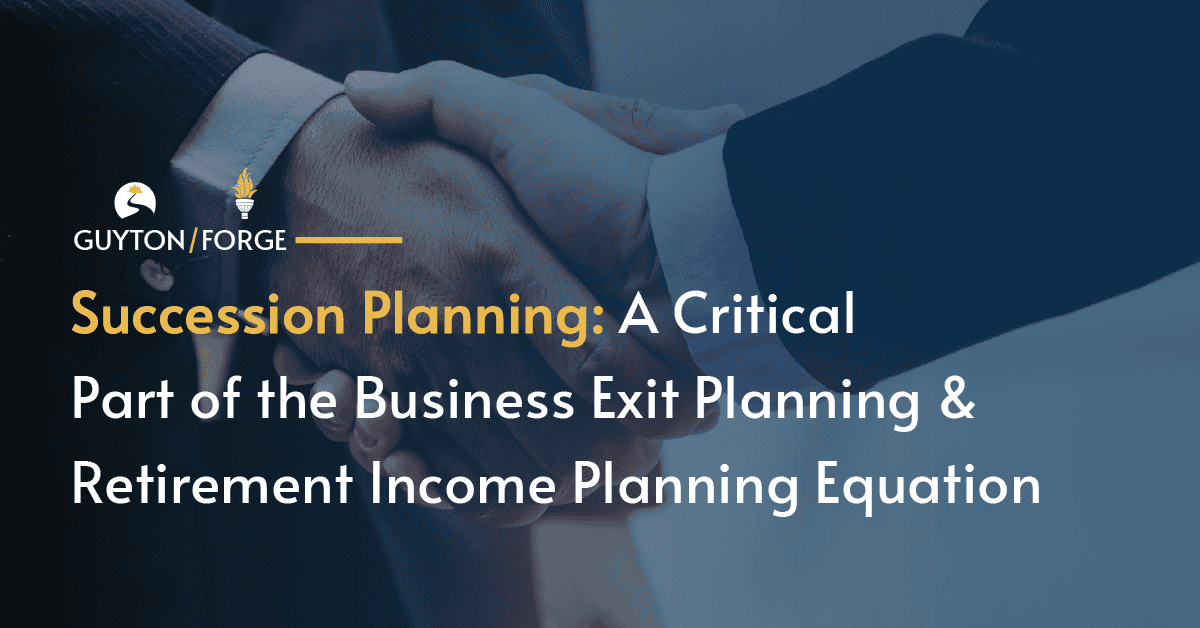Many people are worried about the economy – and whether they’ll have enough money to live comfortably now and into their retirement. After several tumultuous years, people are, understandably, nervous about whether the stock market is rising, when interest rates will decrease, and why we’re still paying a fortune every time we step into the grocery store. While we’re hoping for economic stability in 2024, we don’t have a crystal ball that can accurately predict the future.
What we do know is that it’s more productive to stop worrying about things we can’t control and focus on the things that we can. And while paying taxes is inevitable, you may be able to reduce the amount of taxes you pay with some strategic moves.
Thinking thoughtfully, strategically, and long-term can help you spend less on taxes and allow you to keep more of your hard-earned money. We work with clients every day, helping them consider tax planning strategies that can help them boost their bottom line.
Think long-term
When people save money, they often think of tax implications today, but they might not think about the implications down the road. So, for example, they might decide to max out their 401K to save on taxes now. That assumes you’ll be in a lower tax bracket down the road, but that might not necessarily be the case, especially if you’re earning more in the future, as many people do. Understand that most people make more money later in their lives and careers. Therefore, you might want to pay the taxes now because you will likely be in a higher tax bracket in the future. In other words, I’d urge people to think beyond today – or this year – and consider the bigger picture.
In your early earning years, you might want to use after-tax money – like a Roth – and pay your taxes now so it grows tax- free. Or, perhaps, you could use some Roth and some pre-tax. Then, when you’re in retirement, you can manipulate your tax bracket by taking a certain amount out of pre-tax and then take the rest out of your Roth, so you won’t need to pay taxes on that money.
Suppose you’re a business owner. You sell your company and get a nice payday out of it. In these cases, a lot of people invest that money. If you want to live off that interest, keep in mind that the interest is always taxable. If, instead, you have ability to spend down the principal, you won’t pay taxes on that money, since the principal is not taxable.
Here’s another idea: some annuities will also spread gains over your lifetime, so consider the exclusion ratio vs. realizing the gains in a given year when you take the money out.
Is “more” better?
Many people wonder if this is a case where “more is better” and they should try to do ALL of these things simultaneously.
It really depends on your specific situation. For instance, some people have done a great job saving for retirement in pre-tax accounts. If all their money is tax deferred, when you take money out every year it will keep you in a higher tax bracket. If you’re in a lower tax bracket when you retire, that’s not a great scenario because it means you have less money.
Often, people will say things like, “Oh, I won’t need as much money when I retire because my mortgage is paid off.” But, if you think about it, here in NH, you may have pretty hefty property taxes. Plus, you’ll have fixed expenses like healthcare and insurance that you’ll need to pay for. The price of groceries is high right now and so forth. Even if you’re not paying a mortgage, you’ll still have plenty of things you’ll need to fund in retirement. Another thing to consider: If you need $100,000 per year to live on in a 30% tax bracket, you need 150,000 to get to 100,000 net. That’s a lot of pressure for some people.
Other options to consider
Some people might choose to optimize their charitable giving for tax purposes. If you’re interested in donating money, it’s wise to include charitable planning as part of your estate plan.
And some people use tax-loss harvesting to reduce capital gains. Suppose you own stock in Google and Microsoft. In this scenario, imagine that Microsoft isn’t doing well, but Google is. So, you sell some shares of Google and get the gains, and also sell some Microsoft to get some losses. Then, they’re a wash and you won’t need to pay as much in taxes on your gains. It’s good practice to sell some losers and winners. Often, people aren’t inclined to sell the losing stocks because they want to wait for them to come back and provide some gains, but this can be a good way to save on taxes.
As always, we encourage people to consult with a trusted financial advisor to develop a strategy to help them reach their goals. A financial advisor has the knowledge, experience, and objectivity to help people see the big picture and make decisions based on their current circumstances and future financial needs. No single piece of advice is right for everyone, and a financial professional can help develop a customized plan for each client to help them achieve financial health and success.
The Guyton Forge team is here to help you achieve – and exceed! – your financial goals. Please contact us with questions and for any financial needs.
Andrew is a Registered Representative and Financial Advisor of Park Avenue Securities LLC (PAS). OSJ: 160 Gould Street, Suite 310, Needham, MA 02494, 781-449-4402. Securities products and advisory services offered through PAS, member FINRA, SIPC. Financial Representative of The Guardian Life Insurance Company of America® (Guardian), New York, NY. PAS is a wholly owned subsidiary of Guardian. Guyton-Forge is not an affiliate or subsidiary of PAS or Guardian. CA Insurance License #0I61971. Guardian, its subsidiaries, agents and employees do not provide tax, legal, or accounting advice. Consult your tax, legal, or accounting professional regarding your individual situation. The information provided is based on our general understanding of the subject matter discussed and is for informational purposes only. 2024-169858 Exp 2/26






